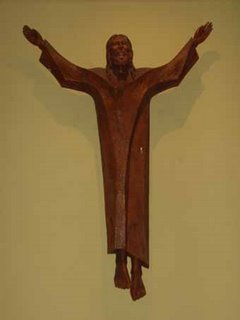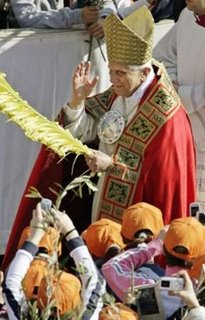No. 51 of the circular letter states: "The washing of the feet of chosen men which, according to tradition, is performed on this day, represents the service and charity of Christ, who came 'not to be served, but to serve.' This tradition should be maintained, and its proper significance explained."
About a year ago, however, the Holy See, while affirming that the men-only rule remains the norm, did permit a U.S. bishop to also wash women's feet if he considered it pastorally necessary in specific cases. This permission was for a particular case and from a strictly legal point of view has no value outside the diocese in question.
The Pope will wash the feet of 12 laymen (not priests)
Oratory Priest won't wash anyone's feet
Catholic's United for the Faith give their view
Charlotte priest apologizes to women for not washing their feet
While I'm like Peter, I don't want my feet washed and can't imagine who would--including most of the women I know who have very clean feet.
Talk about distractions in the liturgy, why does everything have to take the focus off of Christ? He's about to be crucified and the modern disciples (unlike the original ones) are all worried about who is going to be allowed to have their feet washed!

